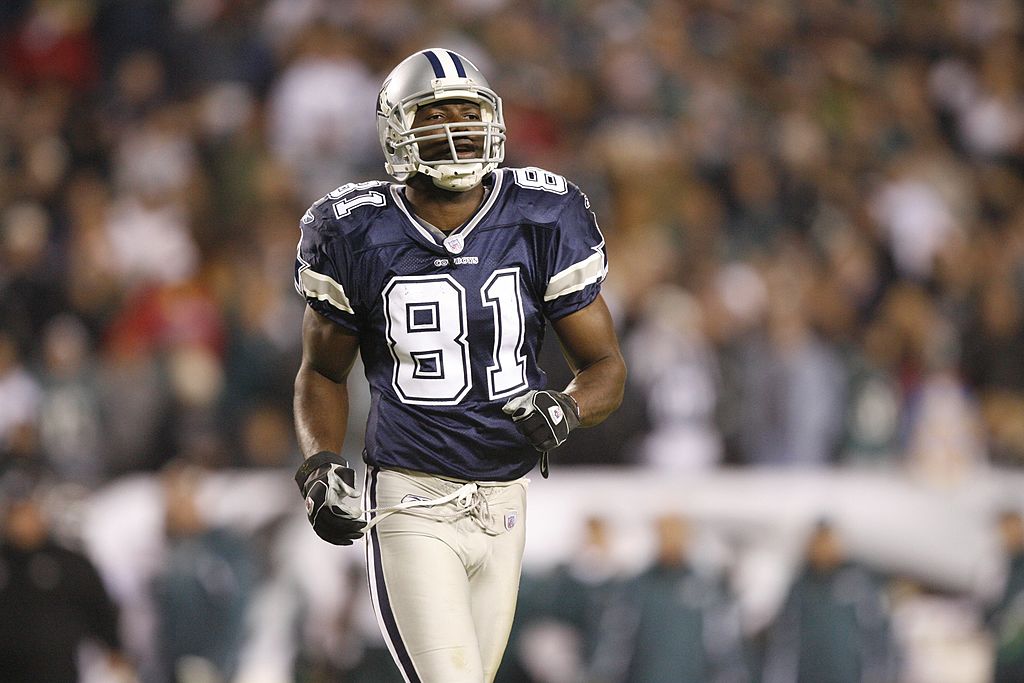NFL
Terrell Owens Is so Bad With Money He Lost $2 Million on Bingo

Terrell Owens is one of the greatest receivers in NFL history. During his Hall of Fame career, he earned $80 million. Owens, unfortunately, like so many other former athletes, wasn’t always smart with his money and lost millions in poor financial decisions made throughout his career. His most costly mistake was a $2 million loss from bingo. Yes, bingo. Here’s a look at what happened.
Terrell Owens loses $2 million in bingo investment
In Terrell Owens’ 15-year career, he finished as the second all-time leader in receiving yards (since been passed by Larry Fitzgerald) behind Jerry Rice, and earned five All-Pro honors. He retired in 2010 after earning $80 million for his career.
A year before Owens’ retirement, he was preparing for his future and life after football. As part of his financial strategy, he was looking to maintain a steady flow of cash when his financial adviser presented him with a unique and lucrative investment opportunity.
The investment was in Country Crossing, one of the largest casinos in Alabama, that included 1,700 electronic bingo machines and was being developed into a multimillion-dollar entertainment and gaming complex. Owens and other NFL players were told they would see a 15 percent return on the investment, and it would ultimately lead to a percentage ownership in the project.
What Terrell Owens failed to realize was the NFL has rules and regulations in place that prohibit investment in projects that contain gambling. But that wasn’t the worst of it. That form of electronic bingo designated for Country Crossing was potentially illegal in the state of Alabama. In January 2010, two weeks after it opened, Alabama officials raided the property and seized the machines and equipment. Just like that, Owens investment of $2 million vanished.
Owens and his other financial disasters
Unfortunately, the investment in Country Crossing wasn’t an anomaly for Owens. He has a track record of decisions that resulted in losses of large sums of money.
Terrell Owens said the main culprit for all of them is trust. He’s been burned time and again by others, who he trusted and allowed to manage his money, similar to Country Crossing. These financial advisers, according to Owens, put him in a series of risky, highly leveraged ventures that he only discovered late in 2010 when he demanded a full accounting.
Owens particularly struggled with investments he made in multiple houses and condos, which he assumed he could rent out. When the real estate market collapsed in 2008, the properties drastically decreased in value, and no one wanted them. On one house in New Jersey that he paid $3.9 million for, he ended up selling for $1.7 million in late 2010.
Owens’ finances took another hit when a friend of his methodically drained one of his bank accounts of more than $270,000. Owens also admitted his judgment in women cost him millions. In particular, four women whom he paid a total of $44,600 a month in child support for his four children, ages 5 to 12. He never even dated the women.
Owens has learned from mistakes and advising others
Today, Owens appears to be a changed man and has learned from his costly mistakes. He now offers advice to other young NFL players in hopes they won’t follow the same path, which has drained him of most of the $80 million he earned during his playing days.
He said one of the first tenets he teaches is not to live beyond your means. He said too often players get sucked into wanting expensive cars and flashy jewelry just because others are doing it. That’s really irresponsible and he sees that now.
Terrell Owens said the main thing he recommends is to avoid putting too much trust in someone else with your money. Whether it’s financial advisers or friends, Owens said it’s incumbent on the individual athlete to stay involved with the financial decisions, and that means actually understanding where the money is going and how it’s being used.
In the end, it appears after all these years, the Hall of Famer finally understands with those big-money contracts come big-time responsibilities, and he’s doing his part to help others. Unfortunately for him, it comes $80 million too late.











